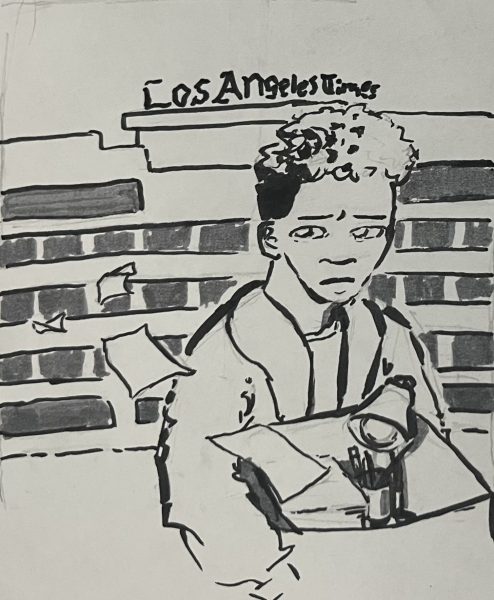Venice High School Should Change its Tardy Policy
October 11, 2019
Many students at Venice High School are far from local. Some live 10-plus miles away and take the school bus, public transport, or are driven by parents to school. The most motivated students find a way to get to school on time every day, but sometimes it’s impossible for reasons out of the student’s control. For example, Estefany Huerta goes to the Metro train station at 6:40 a.m. every day to get to school on time, but is sometimes still late for reasons she feels are out of her control.
“I think this month I have been late more than I have ever been in my past years. I think traffic just gets worse and worse,” she said. Huerta explained that in September alone she’s been tardy 12 times, because of the Metro bus and train arriving late, being too packed, or because of traffic in general.
The school response to students like her arriving late to school has been unreasonable. Over the P.A. announcements, magnet coordinator Pavlin Lange has confronted this issue by saying students should “take an earlier bus,” but people who don’t take the public bus to school daily don’t realize that it isn’t as simple as that.
You can arrive to the bus as early as you want, but the public transportation system is unreliable. Depending on how far you live and traffic, one bus being 10 minutes late can make you tardy to your first period class. Even people with parents willing and able to take them to school can be tardy: a parent may wake up late or take too long to get ready.
Punishing students for things they can’t control is unfair and a waste of time. Arriving one minute late to class can make you miss five, because of the time it takes to walk to the cafeteria, get a tardy slip, and walk back to class. If Venice High School focuses on tardies and attendance because they are crucial to an individual’s education, then the policies put in place should not take away any class time.
Ms. Patricia Futia, who is in charge of pupil services and attendance at Venice, explained that the policies put in place would be better for the students in the long run.
“Our goal is to create accountability for our students, and hope that the behavior is changed. If there is no accountability or no consequences, positive or negative, why does the behavior have to change?” said Ms. Futia.
Ms. Futia explained that enforcing policies is only a fraction of what the attendance office does.
“My job as a PSA counselor is to assess why a student isn’t coming to school. Maybe it’s transportation, illness, a family problem, financial and my job is to look at all of those,” said Ms. Futia. “ There may be other resources that a student needs.”
Unfortunately, most students are unaware that the attendance office can help them, and this limits what the office staff can do. The school doesn’t advertise help. Instead, staff uses California law, which states that all children under the age of 18 must go to school all day every day, to threaten students into coming on time. While it may work statistically, being threatened in this manner by the office makes students reluctant to come to the attendance office for help.
Being on time without a doubt is important, but so are the situations of students. Taking the health and situations of students into account when looking at attendance, rather than just numbers, is common sense.









